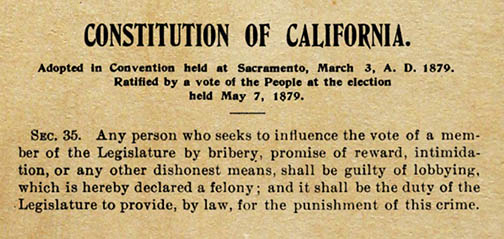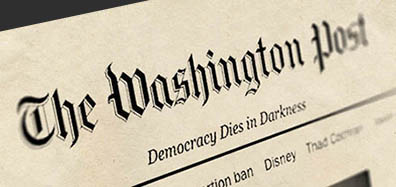Police target and terrorize minorities. That much we know.
But is the terror that police unleash on a predominately white group responsible for George Floyd’s death?

Patrick Lynch - “The Blue Bulldog”
Let’s take a look at the events.
In 2014, in the wake of the Eric Garner chokehold death, the man known as the Blue Bulldog went into NRA-style attack mode right on national TV.
Backed by a phalanx of muscular police, the fiery-eyed Patrick Lynch did what police union presidents do whenever a boy in blue is brought in for charges: they raise their skunk-like tail at every lawmaker they can find.
Like the NRA, AIPAC, Big Oil, Big Pharma and other groups, police unions terrorize legislators.
Gesticulating frenetically in front of the bouquet of TV-news microphones, Lynch delivered a message straight from the script of police union bosses everywhere: if lawmakers continued to push for the prosecution of Garner’s killers, the police would pull back from their duties.
The subtext was clear: With less police intervention, crime rates will soar, causing the public to boot targeted officials from office. This zero–cost threat results in a legislature far more supportive of murderous police.
Yet, by threatening lawmakers, the police eviscerate the chains of their own accountability. State legislatures and the US Congress don’t just write laws on trade and taxation, they are the only group who can defund and punish police. And unlike ‘citizen groups,’ Congress has the power to launch an inquisition that could make the Watergate hearings appear like a hippy love-fest in comparison.
Yet, few lawmakers run an inquisition from a state of fear. And though they are predominantly wealthy, white and male, elected officials are terrified of the police.
In response to the George Floyd murder, Representative Alexandria Ocasio-Cortez (herself a victim of a public death threat by a policeman in 2019) underlined the effects of this fear:
I’ll just say it: a lot of politicians are scared of the political power of the police, and that’s why changes to hold them accountable for flagrant killings don’t happen.
A local legislator from Tennessee suggested the same.
Since I called for defunding the Sheriff Budget yesterday, the flood gates have opened with threats… I was 1st threatened with death 5 years ago.
The authors of these statements are the exceptions. They are minorities: safe to speak out against the police from their minority dominant districts. Yet, as scholars have long noted, most legislators don’t have this same luxury.
So, instead of punishment for police killings, we get a vacuum of immunity. People march, newspapers pontificate, and then our terrified legislators turn quiet.
While racism might be at the root, political terrorism is the cause.
Derek Chauvin felt the power of this immunity as he glared into the camera while kneeling on George Floyd’s neck. Daniel Pantaleo enjoyed this immunity as he pulled his arm tighter around Garner’s throat. And their respective chiefs embraced this immunity by turning a blind eye to the dozens of questionable prior actions by these officers.
So, forget bribery. Lobbyists, like the police union and the NRA, prefer to terrorize lawmakers. It is cheap, retains its effects for decades, and casts a wide net. Worse, when presented publicly, threats are roundly regarded as fair play. But they are hardly new.
Six years before the ratification of the Constitution, a roving band of armed soldiers – an early form of continental police – pulled the same trick. Seeking more pay, they ‘lobbied’ the Continental Congress. And like the police unions of today, their approach had far more to do with spreading fear (via gunshot) and a lot less to do with graft. In response, the terrified legislators adjourned in Philadelphia and secretly fled overnight to Princeton.
A couple years later Shays’ Rebellion broke out in Massachusetts. Fighting over taxation, the armed vets wreaked terror on the Continental Congress. Their belligerent actions nearly dissolved the union.

Section 35 of California Constitution
Taking note of this terror, a number of state constitutions made such ‘lobbying’ illegal. And the 1879 California Constitution (written by an all-white legislature), specifically highlighted their concerns with “intimidation.”
But the most important response came from the Framers of the US Constitution. James Madison, Alexander Hamilton and others met in Philadelphia with the express intent of curbing this ‘violence of faction.’
They proposed two novel tactics.
First, Madison pushed for a stronger federal government. He was convinced that by better uniting the states into a more powerful central authority, national legislators would suffer less intimidation. For example, New York militias would find it more difficult to coerce politicians who lived in Missouri.
Second, he and Hamilton pushed for legislative secrecy. Behind closed doors, individual legislators were sheltered from even the most belligerent lobbyists. And so, groups like Amazon, the NRA, AIPAC and the police, who like to pick off legislators one-by-one, would no longer be sure who to target.
Referring to such groups as “factions,” Alexander Hamilton addressed this power of secrecy with words that apply precisely to the police unions of today. He wrote:
Had the deliberations been open while going on, the clamors of faction would have prevented any satisfactory result.
And so, while the Articles of Confederation are broadly considered to be garbage, they were also notable for how they were drafted in the broad daylight of transparency. Conversely, the Constitution, written in the most secretive sessions ever held by any American legislature, is a masterpiece.
By simply closing the doors, the Framers sheltered their members from the threats of armed insurgents, moneyed groups and other violent factions.
But the Framers weren’t finished there. At the close of the Convention, without fanfare or flourish, they inserted a legislative right to secrecy in the Constitution (Article 1, Section 5). Overlooked by many, this time-tested protection from intimidation sits there to this day, unrepealed, undiscussed and woefully unused.
Few realize, however, that this Constitutional secrecy held for nearly 200 years. It was only in a wave of ‘sunshine’ in the 1970s, that Congress was compelled to throw open their doors. As the hit song ‘Let the Sunshine In’ blared from radios everywhere, scores of belligerent lobbyists (often funded by foreign entities and wealthy Americans) stormed into the once-secret committee meetings and congressional voting sessions.
As a result, everything changed. Lobbying flourished. Campaign finance (used mostly to intimidate) went through the roof. Inequality soared. And just years after passing the most powerful Civil Rights legislation in history, the US Congress found itself hog-tied, terrified, and inept.
Hundreds of scholars have noted this dynamic. But the media, predominantly owned by the nation’s wealthiest Americans, continue to endorse transparency. And the world’s wealthiest man, Jeff Bezos owns and controls the most overtly pro-transparency newspaper of them all – the Washington Post.

Masthead of the Washington Post
Immediately after buying the Post, Bezos added an eerie tagline to the masthead, “Democracy Dies in Darkness.” Somehow, the owner of one of the country’s most powerful lobbyists, Amazon, appears to have never considered the secret ballot or the Constitution.
Yet, a simple glance at the powerful legislation of the 1960s reveals that a secretive Congress is unafraid to put the screws to even the most powerful special interests or violent factions.
With respect to minorities, a secret Congress would assure police accountability: Bad-apple police would be stripped of their immunity and sent to jail. And thousands of good-apple police (often minorities) would rejoice, thrilled that their profession is finally on the up and up.
If lawmakers were able to shelter themselves from the threats of police, George Floyd would still be alive today.
–+–
James D’Angelo is Founder of Congressional Research Institute where he researches the weaponization of transparency and related issues.




